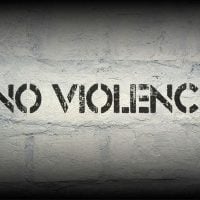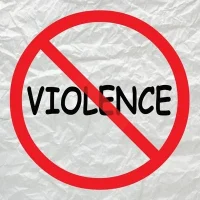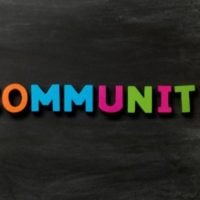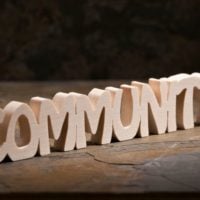Deadline: 2-Dec-23
The United States Agency for International Development (USAID) is seeking applications for a Fixed Amount Cooperative Agreement from qualified Bangladeshi local entities to implement the USAID Host and Impacted Community Resilience Activity program.
The purpose of this activity is to improve the overall well-being and resilience of people residing in the communities hosting or impacted by the Rohingya refugee crisis. In this case, host communities refer to the Ukhia and Teknaf upazilas hosting Rohingya refugee camps. Impacted communities are Cox’s Bazar district, and communities throughout the three Chittagong Hill Tracts (CHT) districts (Bandarban, Rangamati, and Khagrachari). The inclusion of the CHT districts will allow the activity to address longerterm, less immediate impacts of the refugee crisis related to social cohesion and conflict prevention across the region.
The activity’s key programmatic areas of interventions include economic growth and livelihoods; natural resources management; water, sanitation and hygiene (WASH), with an emphasis on access to safe drinking water; and disaster risk reduction (DRR).
Project Logic Model
- Activity Goal: The objective of this activity is to improve the overall well-being and resilience of people residing in the communities hosting or impacted by the Rohingya refugee crisis by addressing the immediate- and long-term impacts of the crisis. The activity’s key programmatic areas of interventions include economic growth and livelihoods; natural resources management; WASH; and DRR. These focus areas are aligned with the problem statement above and have been selected to enhance well-being and resilience and improve social cohesion.
- Working Development Hypothesis: If USAID expands income-generating opportunities, enhances access to WASH services, strengthens natural resource management, and reduces the risks associated with natural disasters and other crises, then the impact of the Rohingya refugee crisis will be partially mitigated and residents of communities hosting or impacted by the crisis will see their overall well-being and resilience to shocks and stressors improve, which will in turn improve social cohesion.
- Development Objective 4: Strengthened Resilience to Climate Change and Other Shocks
- Intermediate Result: Opportunities for Rohingya and Host Community Enhanced
- Activity Goal: Improve the overall well-being and resilience of people residing in the communities hosting or impacted by the Rohingya refugee crisis
- Result 1: Income-generating opportunities expanded Result
- IR 1.1: Increased access to relevant and high-quality skills training that connect to employment opportunities
- IR 1.2: Improved access to high-quality agricultural inputs and services
- IR 1.3: Increased production of high-value commodities
- IR 1.4: Expanded opportunities for sustainable livelihoods
- IR 1.5: Increased market linkages
- Result 2: Access to basic WASH services enhanced Result
- IR 2.1: Increased capacity of local actors to sustainably provide WASH services
- IR 2.2: Increased access to safe drinking water
- IR 2.3: Increased adoption of and access to appropriate hygiene practices and product
- IR 2.4: Improved waste management
- Result 3: Sustainable natural resources management strengthened Result
- IR 3.1: Enhanced co-management of natural resources
- IR 3.2: Strengthened protection of biodiversity
- IR 3.3: Increased access to fuelwood alternatives
- Result 4: Ability of host and impacted communities to mitigate, adapt to, and recover from shocks improved
- IR 4.1: Increased community capacity in shock preparedness and response
- IR 4.2: Increased availability and access to disaster management infrastructure facilities
Funding Information
- Subject to funding availability, successful programmatic review and ongoing implementation, and at the discretion of the Agency, USAID intends to provide up to $70,198,757 in total USAID funding over a five-year (5) divided into four (4) separate periods.
- Base Period Year
- Project year: 1 -2
- Estimated Amount: $28,000,000
- Renewal Period 1
- Project year: Year 3
- Estimated Amount: TBD
- Renewal Period 2
- Project year: Year 4
- Estimated Amount: TBD
- Renewal Period 3
- Project year: Year 5
- Estimated Amount: TBD
- Base Period Year
Geographic and Beneficiary Population Targeting
- Geographic Targeting: Districts of Cox’s Bazar, Bandarban, Rangamati, and Khagrachari Geographic targeting and beneficiary population targeting will be an important and politically sensitive aspect of this activity. The geographic area will be divided into two distinct operating areas: host communities and impacted communities. Host communities include the two upazilas where there are Rohingya refugee camps: Ukhiya and Teknaf. For the purposes of this activity, “impacted communities” will include the district of Cox’s Bazar, as well as the three districts that comprise the CHT: Bandarban, Khagrachhari, and Rangamati. This will be a new approach to the Mission’s host and impacted community work which takes a more holistic approach to addressing social cohesion and resilience issues in the region. While the issues are similar across the host and impacted communities, the contexts are quite different. Given the unique features, politics, histories, ethnic tensions, and overall circumstances of both the host communities and impacted communities, an approach tailored to each context will be required.
- Population Targeting and Key Stakeholders
- Within this geographic area, the degree of poverty targeting will also be a key consideration. In addition, the activity will work with the different ethnic groups, and include a special focus on women and youth, to address issues related to the technical areas identified above. Accessible and inclusive approaches that empower local communities and the marginalized groups within them—in particular, women, youth and Indigenous Peoples—are vital to achieving improved wellbeing and resilience. Women, children, youth, the elderly, and members of marginalized communities are more likely to lack an external source of income, access to decision making, and be ignored in data collection and research. In the CHT, key stakeholders will include the Ministry of CHT Affairs, the CHT Regional Council, and the local government councils. As one of the most diverse areas of Bangladesh, and home to many of Bangladesh’s indigenous peoples, this activity will also provide the Mission with an opportunity to promote the rights of indigenous populations in line with USAID’s Policy on Promoting the Rights of Indigenous Peoples.
- Gender
- USAID’s policy on Gender Equality and Female Empowerment requires activities to integrate gender into designs, implementation, and monitoring and evaluation. This activity will integrate gender considerations and promote empowerment of women throughout all interventions, for example, by building women’s capacity for active participation in co-management bodies and by strengthening women’s leadership role in Disaster Risk Reduction interventions.
- Youth
- USAID’s Youth in Development Policy requires activities to mainstream and engage youth in Agency initiatives. Cox’s Bazar is one of the lowest-performing districts in Bangladesh for education and skills training according to the Bangladesh Bureau of Statistics. This activity will promote youth leadership and participation through interventions such as skill development and entrepreneurial activities and supporting their active participation in decision-making processes. The activity will coordinate with USAID’s Bangladesh Integrated Youth Activity (BIYA) which includes work on youth workforce development/skills training.
- Ethnic Minorities and Indigenous Populations
- Given that the CHT region is home to many of Bangladesh’s indigenous populations, engaging these populations will be a key component and approach of the activity. In line with USAID’s Policy on Promoting the Rights of Indigenous Peoples, this activity will analyze indigenous people’s opportunities and challenges, engage indigenous peoples, and establish partnerships with indigenous peoples. While extremely sensitive, interventions under this activity will also work towards safeguarding indigenous peoples’ rights and well-being, which is currently under threat in the CHT region due to the rapid degradation of the environment.
Eligibility Criteria
- Eligibility for this NOFO is restricted to local Bangladeshi organizations.
- Only local organizations as defined below are eligible for award. USAID defines a “local entity” as an individual, a corporation, a nonprofit organization, or another body of persons that:
- Is legally organized under the laws of Bangladesh; and
- Has as its principal place of business or operations in Bangladesh; and
- Is
- majority owned by individuals who are citizens or lawful permanent residents of Bangladesh; and
- managed by a governing body the majority of who are citizens or lawful permanent residents of the country receiving assistance.
- For purposes of this definition, ‘majority owned’ and ‘managed by’ include, without limitation, beneficiary interests and the power, either directly or indirectly, whether exercised or exercisable, to control the election, appointment, or tenure of the organization’s managers or a majority of the organization’s governing body by any means.
- USAID/Bangladesh welcomes applications from Bangladesh-led, Bangladesh-managed, Bangladesh-owned organizations. The Mission anticipates that local in-country organizations will implement both as primes and as sub-awardees, cooperating as part of a consortium or other type of partnership arrangement. The project encourages coalitions of local organizations, primarily civil society/faith-based/community-based organizations, universities and research organizations, and the private sector where there are shared interests, also the organizations that have not previously received financial assistance from USAID. Individuals are also not eligible to apply.
- The Applicants must be responsible entities and must have the necessary organizational experience, accounting, operational controls and technical skills, or ability to obtain them in order to achieve the objectives of the project and comply with the terms and conditions of the award.
- Applications from organizations that do not meet the above eligibility criteria will not be reviewed and evaluated.
- The prime Applicant cannot be U.S.-based organizations, public international organizations, other third country-based organizations, or locally (Bangladesh) established foreign organizations. Such organizations are not eligible as prime awardees under this resulting award. However, they may be eligible as sub-partners under this award, but not as direct grant fund recipients.
For more information, visit Grants.gov.









































